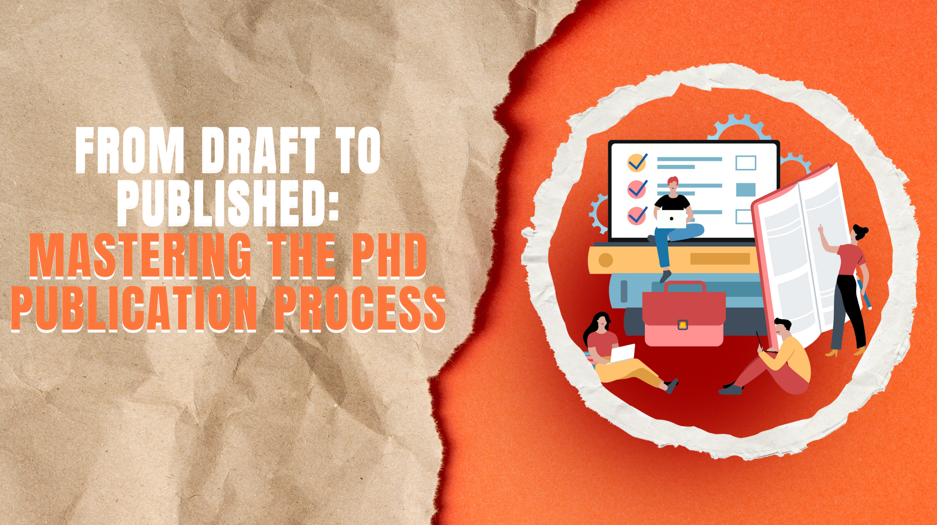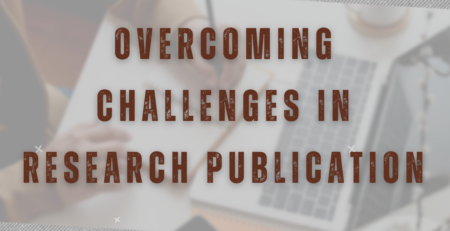03May

Publishing a research paper is one of the most rewarding milestones in a PhD journey. However, navigating the PhD Publication Process—from drafting your manuscript to seeing your work in a reputable journal—can be overwhelming. This blog will demystify the PhD Publication Process, offer actionable steps, and help you master academic publishing like a pro. Whether you’re just beginning your research or ready to submit your first article, understanding how academic publishing works is essential. In this comprehensive guide, we’ll walk you through every step, share key tips for success, and optimize your workflow for visibility and impact.

Publishing isn’t just about adding lines to your CV—it’s about contributing to your field, building your reputation, and laying the groundwork for a strong academic or professional career.
Key Benefits of Publishing:
Everything starts with a research topic that is novel, relevant, and has publication potential. Choose a topic with a clear research gap and measurable outcomes.
Tips:
Publishing high-quality research requires a solid methodology and rigorous execution. Journals look for originality, reproducibility, and well-documented processes.
Things to keep in mind:
Also, make use of tools like Zotero, Mendeley, or EndNote for reference management.
Writing your paper is both a science and an art. Your paper should be clear, concise, and aligned with academic standards.
Standard Structure of a Research Paper:
Writing Tips:
Selecting the right journal can make or break your publication chances. A mismatch in scope or formatting can lead to instant rejection.
Consider These Factors:
Use tools like Journal Finder (Elsevier) or Springer Journal Suggester to help.
Before submission, your manuscript must be polished to perfection. Poor grammar, inconsistent formatting, or unclear arguments will lead to rejection or major revisions.
What to do:
Once your paper is ready, follow the journal’s online submission process. Create an account, upload your manuscript, and include a compelling cover letter.
A Good Cover Letter Includes:
After submission, your manuscript undergoes peer review, where experts evaluate the quality and relevance of your work.
Possible Outcomes:
Don’t get discouraged by criticism—it’s part of the process. Address reviewers’ comments professionally and revise your paper thoroughly.
Once accepted, your paper enters the production phase—copyediting, typesetting, and final proofing. You’ll receive proofs to review before final publication.
Promote your work:
Publishing is rarely straightforward. Be prepared to face and overcome:
Always stay alert and do your due diligence. Never submit to a journal that charges high fees without peer review.
Publishing your PhD research isn’t just a checkbox—it’s a chance to shape the direction of your field, gain recognition, and advance your career. Mastering the PhD Publication Process takes time, but with the right strategy, support, and perseverance, you’ll get there. The PhD Publication Process may seem daunting at first, but breaking it into manageable steps makes it achievable.
Actionable Summary:
• Start with a strong, research-worthy topic.
• Plan and execute with publication in mind.
• Write with clarity and purpose.
• Choose journals wisely.
• Accept and learn from feedback.
• Stay consistent and don’t give up after rejections.
Remember, every published researcher once submitted their first paper. Let yours be the first of many.
Kenfra Research understands the challenges faced by PhD scholars and offers tailored solutions to support your academic goals. From topic selection to advanced plagiarism checking.

Choosing a PhD topic is one of the most important decisions in your academic journey. It’s a decision that... read more

Embarking on a PhD journey is often portrayed as the pinnacle of academic success. With images of intellectual enlightenment,... read more

Publishing research in reputed journals is a critical step in a scholar’s academic journey. However, the process is not... read more
State Eligibility Test (SET) The State Eligibility Test (SET) is a common eligibility test conducted in India to determine the eligibility... read more
Protests erupt as Delhi University raises PhD programme fees by 1,100%- Kenfra University of Delhi: Delhi University, officially known as the University... read more

Managing a PhD is not only about intelligence or subject knowledge. It is mostly about how well you organize your... read more

Embarking on a PhD journey is both exciting and challenging. For first-year PhD students and those preparing... read more
Test to select 300 scholars for fellowship in Nov Selecting 300 scholars for a fellowship program in November requires a well-structured... read more
WhatsApp us
Leave a Reply